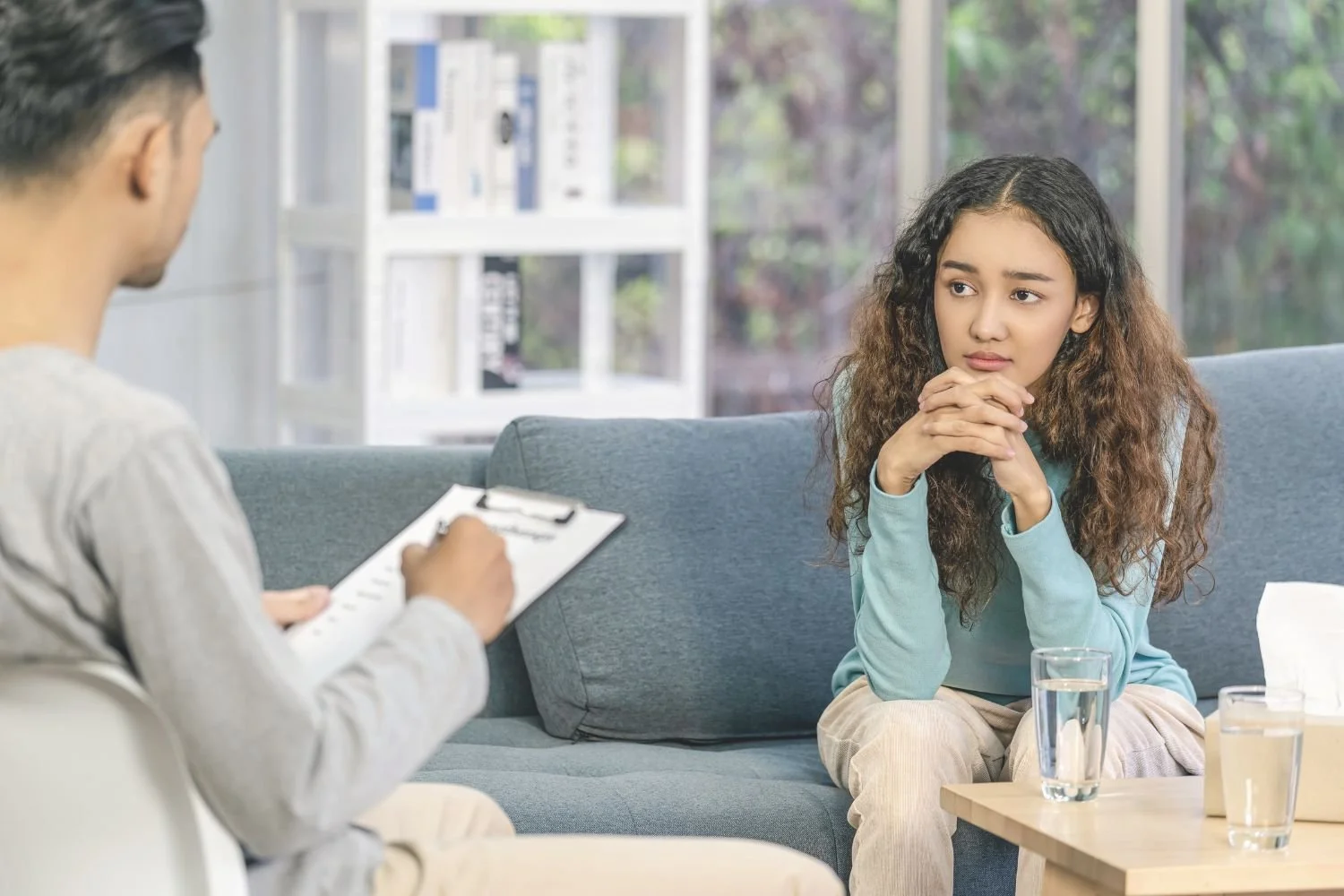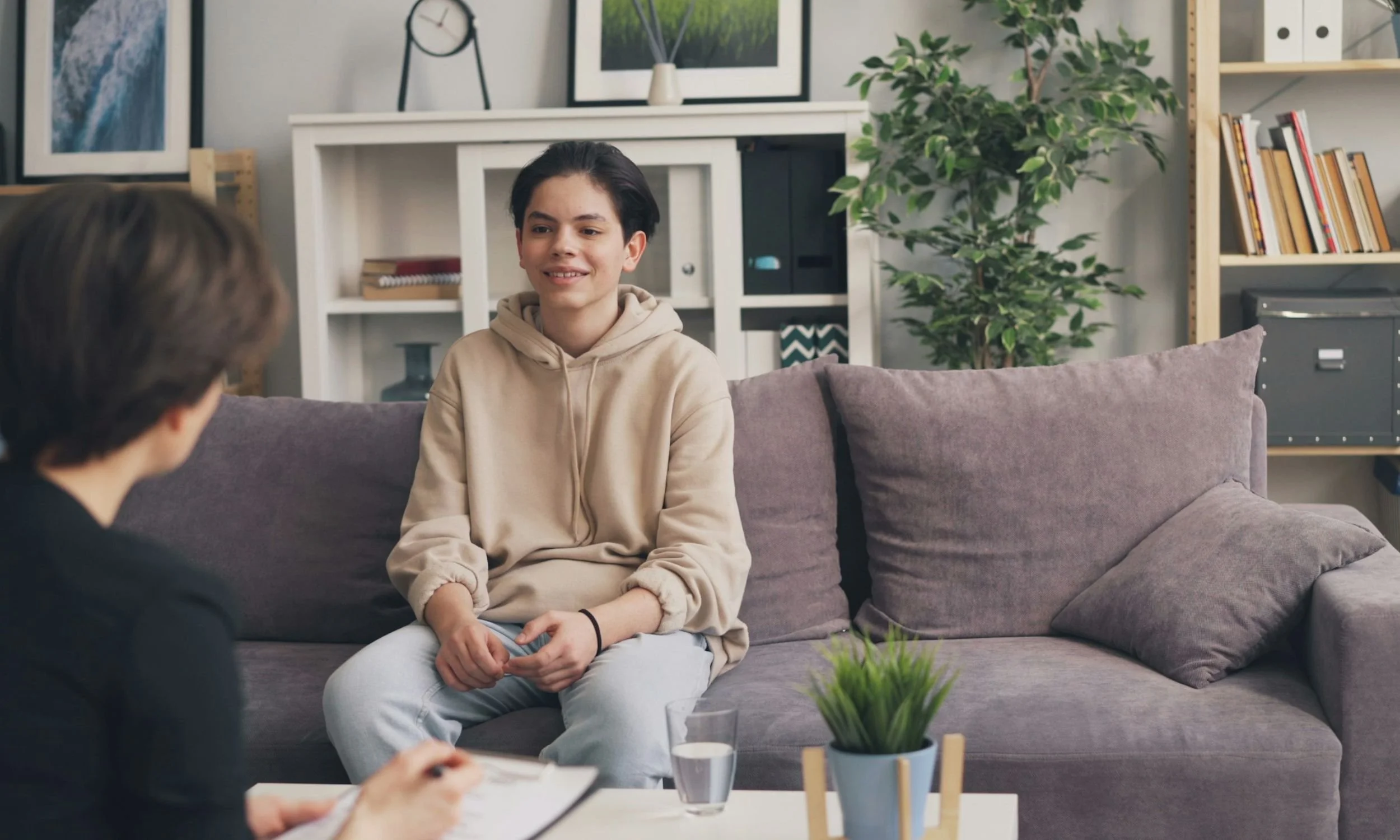Get certified in trauma informed relationships
Where trauma-informed practice meets relationship healing.
We offer certification, consulting, and specialized trainings in Trauma-Informed Relationship Counseling for individuals and couples—designed for therapists, coaches, and other helping professionals.
find the certification path that’s right for you
for therapists
for helping professionals
for coaches
Whether you work with individuals or couples, a truly trauma-informed approach to relationship issues is essential.
It’s not enough to focus only on “Big T” traumas—the kinds that often lead to PTSD or C-PTSD. The “small t” traumas from childhood—unpredictable caregivers, neglect, emotionally unsafe parenting, abandonment—exert a powerful influence on intimate relationships in adulthood. They shape relationship patterns in adulthood, often leading to disconnection, dissatisfaction, and repeated cycles of distress.
Because these experiences are so common, and don’t always result in a trauma diagnosis, they’re often overlooked in traditional research and training. Yet unhealed relational trauma is at the root of many of the issues our clients face—contributing not only to relationship struggles, but also to depression, anxiety, and other mental health challenges.
Some of the most common ways these unhealed wounds from childhood affect clients include:
Shame-driven patterns that block intimacy and connection
Chronic inappropriate guilt and self-blame
Persistent fear of vulnerability and closeness
Difficulty setting and maintaining healthy boundaries
Struggles with communication and conflict-resolution
Repetitive, trauma-driven relationship patterns
Continual attraction to emotionally unavailable or unhealthy partners
Heightened reactivity to relational hurts, leading to anxiety or withdrawal
Lack of self-compassion and self-love
Childhood experiences of ruptured connection to a parent or caregiver often leave children with painful, internalized messages about themselves. These messages continue to echo into adulthood, influencing intimate partnerships, friendships, family dynamics, and even workplace relationships.
Without a trauma-informed approach, these hidden wounds often remain unaddressed—yet they are central to the struggles clients bring to counseling and coaching.
NOW AVAILABLE — ON-DEMAND
join now and get instant access to the entire program.
Pay in full: $1600
6 monthly payments: $295
Includes lifetime access, certification, and personal instructor support. Begin anytime—your learning starts the moment you enroll.
The Certification Program at a Glance
‣ 6 core modules of clinical training with 50 lessons and 24 hours of video instruction, focused on working with both individuals and couples
‣ 30+ handouts and resources to use in your practice, plus transcripts, slides, and reflection guides
‣ Bonus Module on business, marketing, and media training — essential professional skills often overlooked in traditional training programs
‣ Personalized Instructor Feedback — submit questions anytime within the program and receive direct written responses from Angela as you apply the material to your work
‣ Resource library of intake forms and specialized assessments
‣ Public Directory Listing of Certified Trauma-Informed Relationship Therapists, Counselors, and Coaches
‣ Certification Logo for your website, business cards, and materials
‣ Unlimited lifetime access to all course materials, including videos and downloads
‣ 30-day money-back guarantee — 100% refund if the program isn’t the right fit for you
Are you employed by a 501(c)(3) nonprofit organization?
We’ve got you covered. Contact us HERE for special pricing for nonprofit employees.
We also have group discounts for 4+ individuals registering together.
Hey there … I’m Angela Amias, lcsw.
I developed the Trauma Informed Relationship Counseling for Individuals and Couples model of relationship therapy to bridge the gap between cutting edge research on relational trauma and traditional models for relationship counseling.
It’s the first comprehensive relationship counseling model that integrates a trauma informed approach to help both individuals and couples overcome relationship struggles and create more satisfying connections.
from Medicine to the Helping Professions, Trauma-Informed Practice Is Becoming the New Standard of Care.
Health care is undergoing a massive transformation as the impact of trauma on wellbeing gains widespread recognition.
Across medicine and the helping professions, trauma-informed practice is setting a new standard of care. Yet one area has been left behind: the lasting impact of early trauma on adult intimate relationships.
First-wave relationship counseling models, such as the Big Four—the Gottman Method, the Developmental Model of Couples Therapy, Emotionally Focused Couples Therapy, and Imago Relationship Therapy—were developed decades ago, long before we understood the profound impact of trauma on intimate relationships.
Now we need a new model of relationship counseling—one built from the ground up to integrate an understanding of relational trauma in all its forms. This model needs to be trauma-informed, and it also needs to reflect the diversity of contemporary relationships, moving beyond the white, heteronormative, middle-class vision of marriage that was considered the norm in relationship counseling a generation ago.
Thanks to the work of cultural luminaries like Brené Brown, Bessel van der Kolk, Esther Perel, and Gabor Maté—as well as many others who’ve shared their own stories of childhood trauma—clients are arriving in our offices more aware of their past than ever before.
They are actively seeking professionals who can do more than address “Big T” traumas. Clients want skilled support in understanding how early relational wounds still impact their adult relationships—and what they can do about it.
This requires specialized knowledge of how relational trauma in childhood carries forward into adulthood, including:
‣ Recognizing the subtle patterns created by working models of relationships formed in childhood
‣ Uncovering the “secret contracts” that operate under the surface and undermine intimacy
‣ Identifying the essential relationship skills clients missed out on developing in childhood
‣ Connecting early working models to the challenges and growth opportunities of adult intimacy
‣ Recognizing and working with core wounds that drive trauma repetition in adult relationships
‣ Supporting clients in repairing ruptures and building healthier patterns of connection
‣ Understanding how gendered trauma in childhood—shaped by patriarchy—limits self-trust for women and emotional awareness for men, and most importantly, learning how to help all people reclaim their capacity to both know what they feel and speak what they know.
Clients want hope — hope that their painful past experiences aren’t a life sentence for unhealthy or unsatisfying relationships.
With growing awareness about trauma, many clients are beginning to connect the dots between their childhood experiences and their struggles in adult relationships.
But without trusted guidance, they often turn to the internet for answers—and what they find there can be devastating.
As one woman put it after searching online:
“You’re doomed. If you grew up in any kind of abusive family, you’ll continuously choose a partner with whom you replicate the same abusive patterns from childhood. You’re incapable of choosing better, or having boundaries, or even recognizing any of this. Sometimes I even got the impression that growing up in this way actually attracted abusive people and that there was no way to guard against attracting people like this.”
Our clients who’ve survived painful childhood experiences deserve better than this.
With the right training and tools, we can help clients move beyond hopelessness—giving them not just insight, but new experiences of connection, healing, and fulfilling relationships.
Trusted Experts on Trauma and Relationships, Featured in Oprah, NBC News, Today, Newsweek, Cosmopolitan & More
The impact of childhood relational trauma on adult relationships has been overlooked for far too long.
Most training in trauma treatment focuses on symptoms like PTSD or C-PTSD. But research shows only a small percentage of people with childhood trauma ever receive these diagnoses.
The truth is, the most common long-term outcome of childhood trauma isn’t PTSD—it’s difficulty with relationships: struggles with intimacy, repeated cycles of conflict, and even challenges in one’s relationship with self.
These early “small t” traumas—neglect, emotional absence, unpredictable caregiving—leave behind unhealed wounds that surface in adult life, contributing not only to relationship problems but also to depression, anxiety, and disconnection.
That’s why this certification program exists. It brings a trauma-informed lens to the heart of relationship difficulties, filling a critical gap in the way helping professionals are trained. With this model, you’ll be equipped to help individuals and couples heal old wounds and create the healthier, more fulfilling relationships they deserve.
About Us
Angela Amias, LCSW
Founder & Clinical Director
Angela Amias, LCSW, is a relationship therapist and nationally-recognized expert on trauma and relationships. She’s also the co-founder of Alchemy of Love, which provides trauma-informed relationship programs for individuals and couples. She founded the Institute for Trauma Informed Relationships to provide training and education to therapists who want to help their clients heal past wounds and create more fulfilling relationships.
Angela developed the Trauma Informed Relationship Counseling for Individuals and Couples model of relationship therapy to bridge the gap between cutting edge research on relational trauma and traditional models for relationship counseling. It’s the first comprehensive relationship counseling model that integrates a trauma informed approach to help both individuals and couples overcome relationship struggles and create more satisfying connections.
Angela got her start as a therapist working at one of only a handful of clinics in the United States that specialized in treating profound attachment trauma in adopted children. As a trauma focused family therapist, Angela’s role was to help adoptive parents understand the inner world of their wounded child, while she also helped the children in her care learn how to trust again, so they could get close to their adoptive parents.
When she left this role to become a therapist at a holistic healing center, working with women and men with depression, anxiety, and run-of-the-mill relationship issues, she imagined that her specialized skill set for treating attachment trauma would no longer be needed.
What she actually discovered was the exact opposite.
To her surprise, the struggles her adult clients described in their romantic relationships were remarkably similar to what she’d witnessed at the trauma clinic. Nearly all her adult clients seemed to be carrying some of the same core wounds from childhood that she’d first seen in severely traumatized children.
This was true despite the fact that many of her clients reported having unremarkable childhoods, with seemingly adequate parenting when they were young. And yet, they’d still grown up internalizing messages that created problems in their adult relationships.
This convinced Angela that people don’t have to experience severe Capital T Trauma to be wounded by painful childhood experiences. Things like frequent criticism, parental unpredictability, a lack of positive attention, or a sense that our authentic selves aren’t lovable all affect us deeply … in ways that we carry with us into our adult relationships.
This realization—that nearly all of us have core wounds from childhood that interfere with our ability to create healthy, intimate relationships—changed the course of Angela’s career.
The truth is: in Angela’s work with hundreds of individuals and couples, she has yet to encounter anyone whose relationship problems in adulthood don’t have roots in childhood experiences.
This insight led Angela to pioneer the development of Trauma Informed Relationship Counseling for Individuals and Couples, which helps clients understand the connection between their childhood experiences, what they learned about relationships as a result of those experiences, and the issues they’re currently experiencing in their relationships.
It was her work with hundreds of individuals and couples that informed the creation of the Five Relationship Archetypes. The Five Relationship Archetypes model reflects the five key ways that childhood relational trauma impacts adult intimate relationships, based on the messages we internalize as children about ourselves and how we show up in our relationships with others. With Dr. Daniel Boscaljon, Angela also developed the Relationship Yes! Test as a simple, five question assessment to help people measure the health of their intimate relationships.
In an effort to understand intimate relationships from all angles, Angela has trained and practiced as a discernment counselor, helping couples on the brink of divorce to decide whether to separate or try to heal their relationship. She’s also a certified divorce mediator.
Angela blends her extensive background in psychodynamic approaches to trauma and attachment with specialized training in therapeutic writing and journaling as tools for trauma recovery, emotional healing, and personal growth. She uses these creative approaches to help individuals and couples transform past pain into the seeds for future possibilities … possibilities that include the kind of loving, intimate relationships with self and others that each person deserves to have. Her approach to healing relational trauma seamlessly blends creativity and healing, reflecting her profound faith in the power of honoring our true stories as a path to discovering our fullest potential.
She received her Masters of Social Work at the University of Iowa in 2009 and also holds a Bachelor of Arts in Psychology, also from the University of Iowa. She’s currently a doctoral student studying analytical psychology at Pacifica Graduate Institute.
As an expert on trauma and relationships, Angela has been featured in numerous publications, including Today, Oprah, Cosmopolitan, The Independent, Well + Good, Forbes, Salon, MSN, Women’s Health and the Toronto Sun. On the topic of relationships, she’s been a contributing writer for Inc. and Fatherly. On the subject of trauma, she’s a contributing author of the Clinical EFT Handbook, published in 2013.
In her spare time, Angela is a mixed media artist. Her artwork has been exhibited in numerous galleries around the United States and published in several journals and magazines. She’s also the co-creator of the Faces of the Divine Feminine Oracle, published in 2017.
Born and raised in Kansas City, Missouri, Angela now makes her happy home in Cheyenne, Wyoming. On sunny days, you can find her cozied up with a book or hiking in the mountains with Daniel.
You can find her art at angelaamias.gallery.
Daniel Boscaljon, PHD
Co-Founder & Director of Program Development
Dr. Daniel Boscaljon is an internationally respected author, scholar, and teacher. In addition to his role as the Director of Program Development at the Institute for Trauma Informed Relationships, he’s also the co-founder of Alchemy of Love, which provides trauma-informed relationship programs for individuals and couples. As an executive coach and business consultant, he founded the Peerless Leadership to bring relationship education and training into the workplace.
Daniel’s interest in trauma-informed relationships emerges from his struggle to move past the ways his childhood trauma negatively impacted his life and relationships. As is true of many survivors, as he healed past wounds, he discovered a desire to use his skills and experiences to help others recover. This led him to focus his career on how to help others create lives that no longer are controlled by the past, so they can find personal meaning and fulfillment in the future.
Daniel has two PhDs from the University of Iowa. His graduate education allowed him to deeply engage with sources of traditional wisdom as well as psychoanalysis and narrative. After a brief academic career, he shifted to working with adults by providing educational training and development for groups and working one-on-one with executives who want to make a difference in the world. In his role at the Institute of Trauma Informed Relationships, he helps design programs that support therapists, counselors, and coaches in their healing work with clients.
As an expert on relationships, trauma, and human flourishing, Daniel has been featured in many publications, including NBC News, Newsweek, Harper’s Bazaar, MindBodyGreen, Verywell Mind, Forbes, Business Insider, and many others.
Born in California and raised in Iowa, Daniel now happily makes his home in the wilds of Wyoming. You can learn more about him at danielboscaljon.com and peerlessleadership.org.
Working with Relational Trauma? Get Support for Your Practice.
When you work with clients who have experienced relational trauma, the beliefs they carry about themselves and about relationships often create patterns of distress long before those beliefs can be named.
Helping clients identify these core relationship wounds can be a powerful first step in reducing shame, increasing self-awareness, and opening new therapeutic conversations.
The Institute for Trauma-Informed Relationships offers a free clinical resource—Identifying Core Relationship Wounds: A Trauma-Informed Clinical Checklist (with Practitioner Guidance)—designed to help you work with these themes in practice. This checklist is intended to be used with clients and can be integrated immediately into individual or relationship work.
The accompanying practitioner guidance offers context for ethical, trauma-informed use, including how to adapt the language to your client’s experience, avoid premature interpretation, and situate this tool within a broader relational healing process.
We’re passionate about giving back
Helping those in need is something we take very seriously as part of our commitment to create a more loving, connected world. That’s why we donate 10% of our profits to charity.
Not only does becoming Certified in Trauma Informed Relationships enable you to make a bigger, better impact on those you serve, you can feel even better knowing that a portion of your registration fee is going to help others around the world.
Our 2026 charity of choice is GiveDirectly. We are proud to support their poverty relief work in the poorest regions of Africa.







































